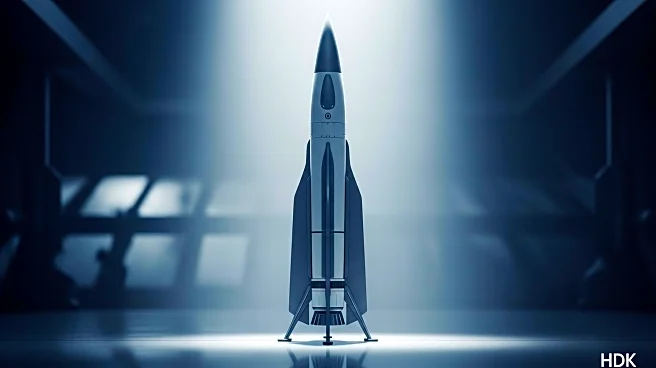What's Happening?
The U.S. Army has awarded Lockheed Martin a $9.8 billion multiyear contract to produce nearly 2,000 advanced variants of the Patriot air and missile defense missile. This contract, announced during a joint signing ceremony at Lockheed's Grand Prairie, Texas facility, marks the largest deal in the history of the company's Missiles and Fire Control unit. The Patriot missile system is a key component of the U.S. military's defense strategy, designed to intercept and destroy incoming threats such as tactical ballistic missiles, cruise missiles, and advanced aircraft. This contract underscores the U.S. Army's commitment to modernizing its missile defense capabilities and maintaining a robust defense posture.
Why It's Important?
The awarding of this contract to Lockheed Martin is significant for several reasons. Firstly, it represents a substantial investment in the U.S. military's missile defense capabilities, ensuring that the country remains prepared to counter evolving threats. The Patriot missile system is a critical element of national defense, and this contract will enhance its effectiveness and reliability. Additionally, the deal is a major boost for Lockheed Martin, solidifying its position as a leading defense contractor and potentially creating numerous jobs in the defense sector. The contract also reflects the U.S. government's ongoing commitment to defense spending, which has implications for national security and the defense industry.
What's Next?
With the contract in place, Lockheed Martin will begin the production of the advanced Patriot missile variants. This process will involve significant collaboration with the U.S. Army to ensure that the missiles meet the required specifications and performance standards. The production and deployment of these missiles will likely be closely monitored by defense analysts and policymakers, given their importance to national security. Additionally, the contract may lead to further investments in missile defense technology and research, as the U.S. seeks to maintain its technological edge in military capabilities.









